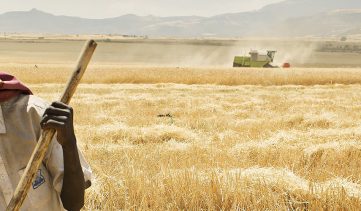
The UN Secretary-General launched a policy brief on the impact of COVID-19 on food security and nutrition. Protecting essential food service workers, strengthening social protection for nutrition, and transforming food systems toward sustainability and inclusion will be key to safeguard food security and nutrition.
Additional highlights from this week’s Compact2025 News in Brief include:
- Food systems must prepare for a long fight against COVID-19, writes Maximo Torero, Chief Economist and Assistant Director General for Economic and Social Development at FAO, in a blog post. A range of policies can help stave off a global food crisis amidst the unprecedented combination of the Great Lockdown and the worst recession since the Great Depression.
- The CGIAR research program on Climate Change, Agriculture, and Food Security (CCAFS) released a report on transforming food systems under climate change. The report identifies pathways for transformation and offers four action areas to catalyze change: (1) REROUTE farming and rural livelihoods to new trajectories, (2) DE-RISK livelihoods, farms, and value chains, (3) REDUCE emissions through diets and value chains, (4) REALIGN policies, finance, support to social movements, and innovation.
- An article in Advances in Nutrition investigates the potential for “catch-up growth” for children who suffered height deficits from undernutrition. The evidence shows that adverse conditions including undernutrition early in life have irreversible effects. Although partial catch-up is possible, most interventions in low- and middle-income countries do not achieve dramatic improvements. Scientific, program, and policy efforts in nutrition should focus on preventing maternal and child undernutrition rather than on correcting its consequences or attempting to prove that the consequences can be corrected.


